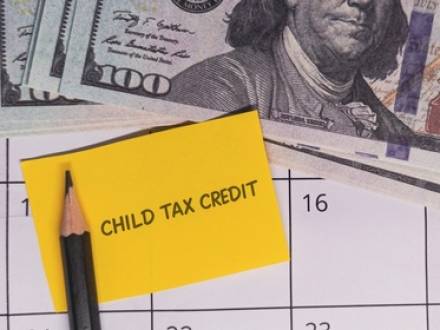Can I Claim the Child Tax Credit After My Divorce?
 Tax season after divorce brings new questions and complications. One of the biggest concerns for divorced parents is who gets to claim the Child Tax Credit. This credit can be worth thousands of dollars and could make a significant difference in your tax refund.
Tax season after divorce brings new questions and complications. One of the biggest concerns for divorced parents is who gets to claim the Child Tax Credit. This credit can be worth thousands of dollars and could make a significant difference in your tax refund.
After a divorce, both parents often want to claim it. But federal tax law only allows one parent to claim the credit for each child each year. So – do you get to claim it, or does your spouse? Meet with our Naperville, IL divorce lawyer for help with this and other tricky divorce questions.
Who Gets to Claim the Child Tax Credit Under Federal Law?
The IRS has clear rules about who can claim the Child Tax Credit. The custodial parent is the parent with whom the child lives for the greater number of nights during the tax year. That parent has the right to claim the credit unless they release it to the other parent.
If your child spent 200 nights with you and 165 nights with your ex, you are the custodial parent for tax purposes. You automatically get to claim the Child Tax Credit unless you agree otherwise. Equal parenting time where the child spends exactly 182 nights with each parent is rare. Even one extra night determines who the custodial parent is.
The noncustodial parent can only claim the credit if the custodial parent signs IRS Form 8332 releasing the exemption. This form specifically allows the noncustodial parent to claim the child tax credit. Without this signed form, the noncustodial parent cannot legally claim the credit even if the divorce decree says they can.
Your Divorce Decree Can Say Who Will Claim the Child Tax Credit
Illinois divorce decrees often include provisions about claiming children on taxes. Under the Illinois Marriage and Dissolution of Marriage Act, courts can allocate dependency exemptions between parents. Judges consider several factors, including each parent's income, how much time the child spends with each parent, and who pays for health insurance and other expenses.
Some divorce decrees allow each parent to claim the Child Tax Credit on alternate years. Other decrees split children if there are multiple kids. Your divorce decree creates a legal obligation between you and your ex, but it does not automatically change IRS rules. If the decree says the noncustodial parent gets to claim the child, the custodial parent must still sign Form 8332 for that parent to actually claim the credit. The IRS will not accept your divorce decree as proof of the right to claim the credit.
What Happens If Both Parents Claim the Same Child for the Child Tax Credit?
The IRS sees this problem frequently with divorced parents. When both parents claim the same child, the IRS applies tiebreaker rules. The custodial parent wins unless they properly release the exemption with Form 8332.
If you claimed a child you should not have claimed, the IRS will reject your return or require you to amend it. You might face penalties and interest on taxes owed. The IRS can also ban you from claiming certain credits for two years if it finds you fraudulently claimed a child.
Call a DuPage County, IL Divorce Lawyer Today
Contact Pesce Law Group, P.C. at 630-352-2240 for a free consultation about your divorce case. Our Naperville, IL divorce attorneys have almost two decades of legal experience helping clients navigate the financial complexities of divorce. We make sure tax provisions in your divorce decree are clear and protect your rights. Do not leave thousands of dollars in tax benefits to chance.











 630-352-2240
630-352-2240



